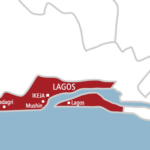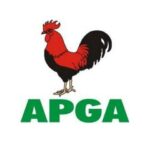You probably missed the story. I would not blame you. This is not about the important people and the well-heeled in the society. This is about those Franz Fanon called the wretched of the earth at the mercy of poor and inconsiderate political leadership; the poor who beget the poor; the poor whose welfare is supposedly the reason politicians seek power; the poor who are cheated and disappointed by successive administrations at federal and sub-national levels.
It is about the inclement weather of inconsistent educational policies, neglect and poor funding that have retarded our educational progress and development with the poor bearing the brunt of the duplicity of our political leaders. Take a breath.
Here is the story reported by The Punch newspaper in its issue of August 13, 2023, with a headline that summarised the story, “How poor leadership, funding frustrate basic education in northern Nigeria:
“One of our correspondents had embarked on a trip to Karim Lamido LGA for an assignment when he suddenly sighted the LGEA primary school in Tsakuma community and beheld a strange scene several metres away. Our correspondent observed that over 40 pupils were camped under a makeshift tent, which served as the classroom. They sat on logs, and given their population, some sat in the sun outright as the shade provided by the shed could not cover them. And on a closer look, the majority of the pupils looked malnourished with their hair unkempt, while their torn and tattered clothes of different styles and colours – clearly no uniformity in dressing – reeked of abject poverty.”
FRC, ANAN sign pact on auditing firms
Another ‘outsider’ takes the mantle of sports
In a two-page spread with telling photographs of the pupils and their makeshift classroom, the newspaper went beyond what it found in Taraba. It touched on Kano, Borno, Bauchi, Gombe and other states in the north. The same story. Pathetic. It beggars belief but believe it. The story in each of these and other states in the region is of a struggle by them to win the top prize as the worst and pathetic case in their retarded educational development.
This pathetic story is replicated in various communities in the three geo-political zones in the north. You wonder why our leaders choose to treat education like a joke in this century with the greatest progress and development in facilities that facilitate education at all levels. You wonder how these political leaders, bedecked in their expensive babar riguna, are able to mollify their conscience and continue to pay lip service to education and tether the most critical element in human development to their self-deceit and duplicity.
Here is what the Kano State commissioner for education, Alhaji Umar Doguwa, told the reporters: “We found out that the majority of the 5.2 million children in our schools have no chairs and desks. In fact, during one of my inspection visits, I found a school, Dawanu Special Primary School, in Dawakin Tofa Local Government area, with 5,618 pupils all seated on the floor. This is how bad the situation is.”
I find it painful but could not but draw attention to The Punch investigative stories about the crises in primary school education in northern Nigeria for reasons that should be obvious: northern leaders have failed their own people and arrested human development. The region and its people will continue to pay stiff prices for this in terms of human capital development. The headline points to poor leadership and poor or lack of funding as the two reasons for what is happening to public schools at that level in the region. Neither can be disputed without doing some injury to the truth. The north has always lagged behind the other regions in education, but it is foolish to accept this as a challenge that serious and committed political leaders cannot take up and defeat. It points clearly to the failure of leaders who do not take leadership seriously. And could not care less about the present and the future of their own people.
A country that is serious about education and the proper training of its future leaders will not subject millions of children to such a difficult environment that is not conducive to instruction and learning. The primary school is the foundation of education in every country. No country neglects its primary education because if the foundation is not right, you can only trust a miracle to hold up the edifice of post primary and tertiary education. No serious leaders trust the fate and the future of their children to miracles in search of solutions to their problems or to meet their basic challenges.
The crises in our primary school education have lingered for more than sixty years now. There is no reason why the country should not have been freed from them. It is sad, and it is no small sadness, that these crises have been allowed to fester and worsen over the years and no one appears to see it as the serious problem it is for the communities, the states and the country and its citizens. Those crises go all the way back to the seventies when the federal government took two critical decisions that have had a deleterious effect on our education at the primary school level. It introduced the Universal Primary Education, UPE, without preparing for the influx of children into primary schools. It immediately confronted two unexpected developments, namely, increased funding thrown up by the influx and the inadequate number of teachers.
The state governments did not have enough money to fund the schools. The federal government solved the problem by taking over the funding of primary schools. But it soon went back on its commitment and threw the problem back to the states. The states threw it back to the local governments. And the Nigerian shuffle was in full swing. None of us can forget so soon the frequent strikes by primary school teachers over non-payment of their salaries. Primary schools were closed down for months in some states that could not meet the demands of the teachers. Teachers deserted their schools in search of jobs; consequently, there is a crying shortage of primary school teachers in all public schools in most parts of the country today.
The Punch reporters found this: “In Bauchi our correspondent reports that no less than 79 schools in Misau local government area have only the head teacher teaching all subjects from primary one to six.” Ditto in Kano where the education commissioner “visited a school with over 500 pupils with only the head teacher as staff member.”
Can the federal and state governments continue to treat this huge problem with such criminal insouciance? I am afraid the answer is yes. UNESCO recommended that 28 per ent of a country’s annual budget should be given to education. Nigeria has never come anywhere near this threshold. Its best has been a woeful eight per cent. Other African countries, such as Ghana, are doing a lot better than the giant of Africa, and this is clearly reflected in the quality of their education.
Then, of course, we have to deal with the inequalities decreed by life and living. Economic circumstances dichotomise almost every nation into two nations in one – the haves and the have-nots. The gap between the two in our country has the mind to become a gulf. The gap dictates that the children of our leaders and those of the well-heeled are to attend private primary and secondary school where there are no shortages of teachers, funds, and facilities in an environment conducive to instruction and learning. Public primary and secondary schools are left for the children of the poor. And you tell me that our political leaders have a conscience?
It is a shame.
 Join Daily Trust WhatsApp Community For Quick Access To News and Happenings Around You.
Join Daily Trust WhatsApp Community For Quick Access To News and Happenings Around You.

